#lotrnameetymologies
Explore tagged Tumblr posts
Text
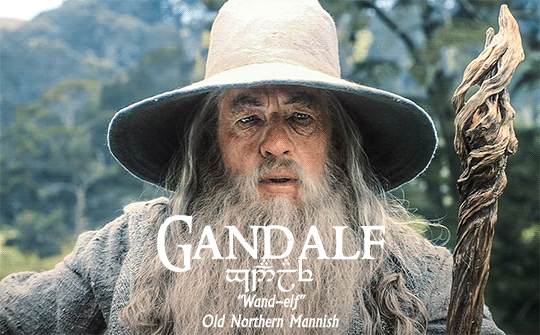
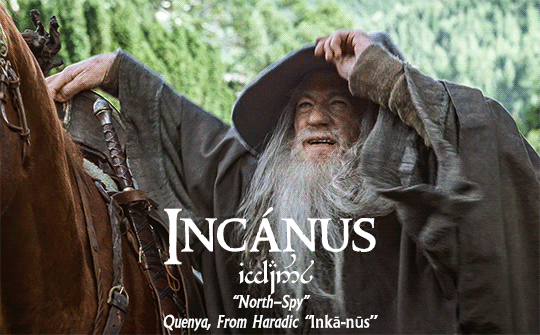
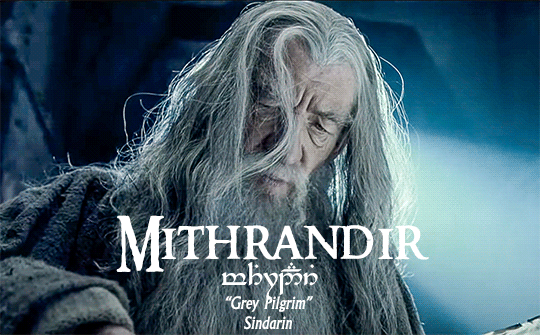
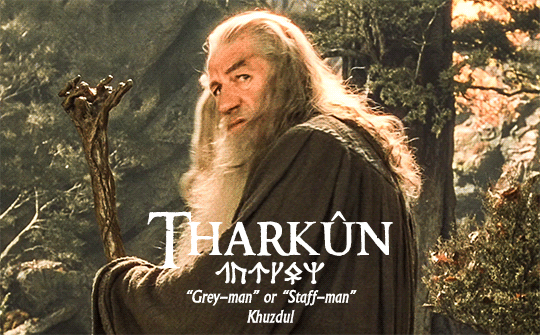
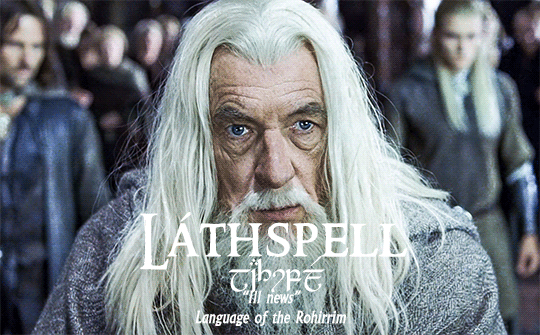

Name Etymologies of Middle-Earth: Gandalf
“Yes, yes, my dear sir—and I do know your name, Mr. Bilbo Baggins. And you do know my name, though you don’t remember that I belong to it. I am Gandalf, and Gandalf means me!”
― The Hobbit, Chapter I: An Unexpected Party
#gandalf#lotr#tolkiensource#tolkienedit#lotredit#the lord of the rings#tolkien#sindarin#quenya#khuzdul#tengwar#this might be the nerdiest edit series I’ve ever done but it’s been so fun so far#also let me know if there are any inaccuracies#olórin is written in quenya mode but the rest should be in the sindarin mode for gondor or in the standard english / westron system#excluding the angerthas for tharkûn#oh also incánus#that’s in quenya mode#lotrnameetymologies#myedit
2K notes
·
View notes
Text
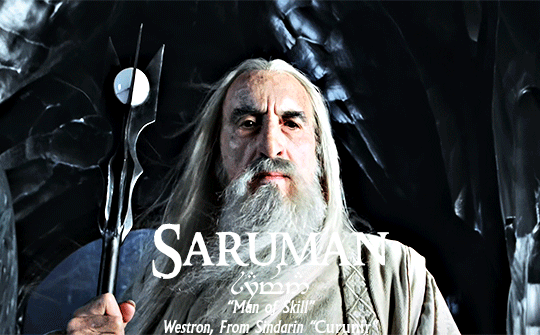
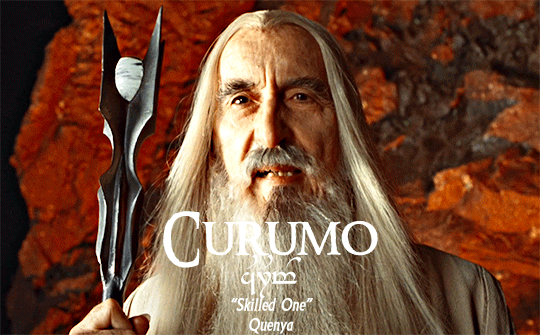



Name Etymologies of Middle Earth: Saruman
Now the White Messenger in later days became known to the Elves as Curunír, the Man of Craft, in the tongue of Northern Men Saruman; but that was after he returned from his many journeys and came into the realm of Gondor and there abode.
― Unfinished Tales, Part Four, II: The Istari
#saruman#tolkiensource#oneringnet#lotredit#tolkienedit#lotr#tolkien#the lord of the rings#just like the last edit all the Tengwar should be in the appropriate modes#and I’ve also created a fact sheet that you can check out if you want to know a bit more about the internal and external etymologies!!!#lotrnameetymologies#myedit
701 notes
·
View notes
Text
Notes on Middle Earth Name Etymologies
Hi all! I'm currently doing an edit series on the name etymologies of Middle Earth.
Since I've seen some discussion in the tags and reblogs of my first edit, I thought I would use this post as a fact sheet. Here, I'll go into a bit more detail on the conlangs and note real-world etymologies of the edits and add to it as I go! Basically, I thought I was normal about this, and it turns out I am decidedly not.

A note on translation:
It's important to remember that Tolkien presents The Hobbit and The Lord of the Rings as translations of the Red Book of Westmarch. This means that for the most part none of the names given to the hobbits, for example, are their 'real' names. Instead, their names are in Westron, a language descended from the 'Mannish' languages spoken by the Edain of Middle Earth as opposed to the 'Elvish' languages.
Westron by the Third Age is a lingua franca across the regions of Middle Earth where the events of the books take place. However, it is not English and is not related to English in any way. Within the framing of the books, Tolkien is only translating the stories in the Red Book of Westmarch from Westron into English. Other 'Mannish' languages also exist at the same time, like those spoken in Dale or Rohan. Tolkien uses languages related to English to roughly approximate the relationship these other 'Mannish' languages have with Westron. For example, the people of Rohan don't actually speak Old English. Instead, Tolkien translates the language of the Rohirrim as Old English in order to reflect the relationship that language has to Westron (more archaic, phonologically and grammatically distinct, but closely related and you are able to understand a few words just by guessing).
A good example that captures this is the word "hobbit". The real-world etymology is fairly simple, since it was a spontaneous invention of Tolkien's. However, if we look at the Hobbit and the Lord of the Rings as translations of the Red Book of Westmarch, "hobbit" is just a translation of the Westron word kuduk. Similalry, when Théoden uses the word holbytla, it's just a stand in for the word he would have actually said: kûd-dûkan, meaning "hole dweller" in the language of the Rohirrim. Tolkien constructed the word holbytla using elements from Old English, so in that sense it has a real-world etymology. But this is done to provide an in-world etymology for kuduk and reflect the shared history hobbits have with the Rohirrim from beore the two peoples settled in the lands they inhabit by the War of the Ring. Théoden (whose name in the Red Book would not be Théoden!) does not speak Old English.
Of course for fic purposes we still use English for Westron and Old English for the Rohirrim (we are not all jrrt, we can't all construct / reconstruct these languages!). But this means that there are real-world etymologies for a lot of names (like Gandalf, the dwarves, or many hobbits). These are often meant to reflect their in-world contexts. It was also incidentally an easy way for Tolkien to borrow cool names without breaking the world mythology he created.

Gandalf
The internal etymology of Gandalf is that it is a name from an older 'Mannish' language from the North. The external etymology of the name is that Tolkien took it, along with most of the names of the dwarves in The Hobbit, from the Dvergatal in the Völupsá (part of the Poetic Edda), and it features across various Old Norse texts. In Old Norse the name means "wand elf".
Incánus
Gandalf is meant to have picked up this name during his travels in the south, potentially in Harad. Incánus is thus the Quenya rendering of a Haradic word Inkā-nūs meaning "North-spy" (x). It might also have had an exclusively Quenya origin, or even Westron. In terms of real-world etymologies, it may have been taken from the Latin meaning "grey-haired".
Mithrandir
Gandalf's Sindarin name. It comes directly from the elements mith "grey, light grey, pale grey" and randir "wanderer, pilgrim" and means "Grey Pilgrim" or "Grey Wanderer"(x).
Tharkûn
This is a Khuzdul name given to Gandalf by the dwarves and means "Staff-man" (x). This is one of the few names of Khuzdul we actually have, since most of the dwarves we meet in The Hobbit and The Lord of the Rings use their common names (as opposed to their secret Khuzdul names) that are in the 'Mannish' languages.
Láthspell
This is the name that Gríma Wormtongue gives Gandalf when he arrives with Aragorn, Legolas, and Gimli at Meduseld. It is meant to mean "ill news" in the language of the Rohirrim. The real-world etymology is "evil tale" or "evil news" in Old English. More generally, Gandalf is referred to by the Rohirrim as "Grey-hame".
Olórin
The name is derived from the Quenya olor, meaning "dream" or "vision" and was used by Gandalf in Aman (x).

Saruman
Saruman is the anglicisation of the wizard's common name in Westron, in the same way that Frodo's real name is Maura Labingi and Frodo is the way his name is translated into English. It's external etymology is probably connected to the Old English searu meaning "skill, cunning, cunning device", so that the compound [searu + man] is the equivalent of his Quenya and Sindarin names, Curumo and Curunír respectively (x).
Curumo
The name means "Skilled-one" in Quenya from curu "skill, craft" and the agental suffx (to indicate someone who performs an action) -mo (x). It was the name Saruman was known by in Valinor.
Tarindor
Saruman was known by this name when he first went to Cuiviénen to protect the elves alongside the other maiar who would later form the Istari, as well as Melian. It comes from tar- "high" and indo "mind, thought, will", meaning "High-minded One" in Quenya (x). Please note that this name (and the idea of Saruman going to Cuiviénen at all) comes only from the Nature of Middle Earth and was probably a very late addition to the Legendarium, so its canonicity can be debated.
Curunír
The name is a Sindarin rendering of the Quenya Curumo and is taken from curu "skill (of the hand), craft, magic"., meaning "Man of Skill" or "Man of Craft". The name is also used for the word wizard (x).
Sharkey
Sharkey is the name given to Saruman in his role as the leader of the men who take control of the Shire. It may be related to the Orkish sharkû, meaning "old man" and then adapted to Westron (i.e. anglicised). It has various external etymologies.

14 notes
·
View notes
Text
Sílant calad Dûn, Tollen Rochon 'Lân.
A light shone in the west, the White Rider had come.






Name Etymologies of Middle-Earth: Gandalf
“Yes, yes, my dear sir—and I do know your name, Mr. Bilbo Baggins. And you do know my name, though you don’t remember that I belong to it. I am Gandalf, and Gandalf means me!”
― The Hobbit, Chapter I: An Unexpected Party
#gandalf#lotr#i also prefer the WHITE RIDER#this must be the nerdest edit I've ever seen about gandalf#tolkiensource#tolkienedit#lotredit#the lord of the rings#tolkien#sindarin#quenya#khuzdul#tengwar#lotrnameetymologies#most important post#draft saved
2K notes
·
View notes